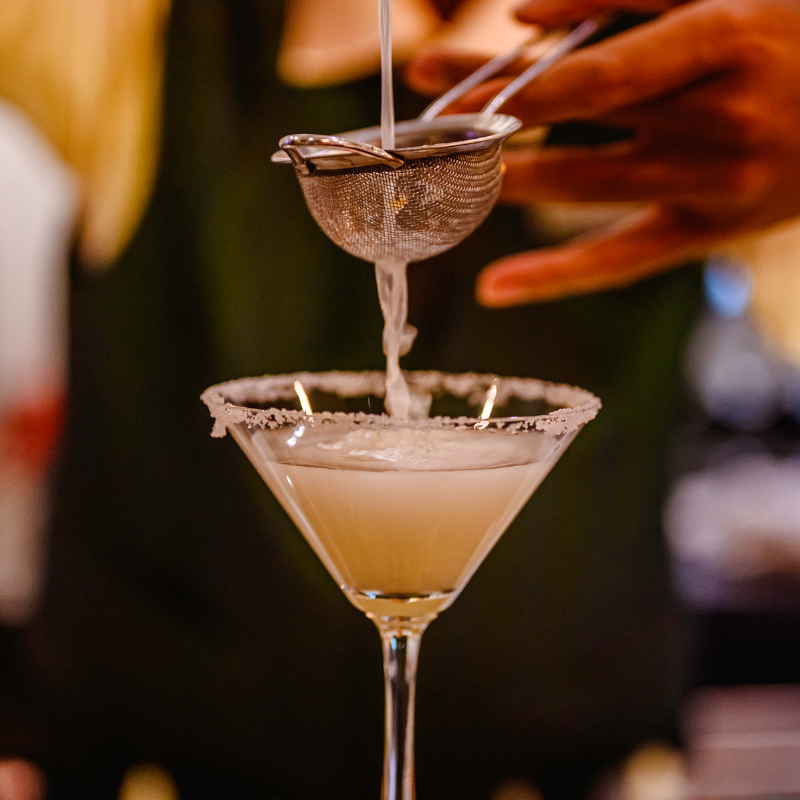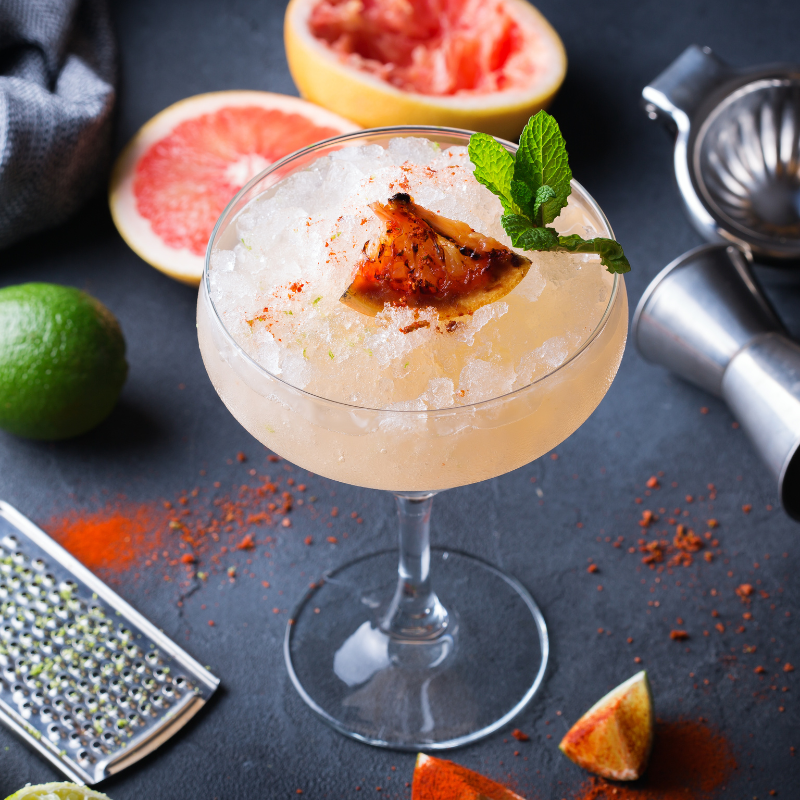Have you ever woken up after a night out, regretting those last few drinks? Or maybe you're tired of feeling sluggish after social events, longing for a way to enjoy yourself without the aftermath?
That’s where mindful drinking can help you. It’s a lifestyle choice gaining traction among health-conscious individuals, social butterflies, and anyone looking to balance having fun and staying well.
Opting for mindful drinking can revolutionize your social life and well-being.
In this post, we'll explore mindful drinking and the Rule of 3. We’ll also discuss the advantages of the lifestyle, share essential tips to get you started and guide you on when it might be time to seek help.
What is mindful drinking?

Mindful drinking is about making conscious decisions regarding your alcohol consumption. It’s not necessarily about abstaining from alcohol completely but rather about being aware of why, when, and how much you drink. This approach encourages a healthier relationship with alcohol, promoting moderation and intentional choices.
It involves being present and fully engaged in the act of drinking. It’s about savoring each sip and appreciating the flavors, aromas, and sensations that come with it.
This practice can help you recognize your limits and, more importantly, avoid overindulgence. Mindful drinking also means being aware of the effects of alcohol on your body and mind and making choices that align with your health and well-being goals.
The rule of 3 in mindful drinking
One practical approach to mindful drinking is the Rule of 3. This simple yet effective guideline helps you maintain control over your drinking habits and ensures you enjoy alcohol responsibly. Let’s explore it in detail.
Rule 1: Three days
Limit your drinking to just three days per week. This approach helps to reduce overall alcohol intake while allowing for social flexibility. It creates a structure that makes it easier to avoid overconsumption and gives your body time to recover between drinking sessions.
Rule 2: Three drinks
On the days you choose to drink, limit yourself to a maximum of three drinks. This rule helps you maintain control and prevent excessive drinking on any single occasion.
Rule 3: Three observations
Reflect on three key aspects of your drinking habits: why you are drinking, how much you are drinking, and how you feel before, during, and after drinking. This reflection promotes greater awareness and mindfulness around your drinking patterns.
Advantages of practicing mindful drinking

When you engage in mindful drinking, you enjoy your alcohol responsibly and reap numerous benefits that go beyond merely avoiding hangovers.
Here are some key benefits of mindful drinking:
Improved physical health
Mindful drinking can have a tremendously positive impact on your physical health. When you are aware of how much you drink and set limits, you can significantly reduce the risk of potentially life-threatening health issues such as liver disease, hypertension, and certain types of cancer.
Besides, drinking less alcohol means consuming fewer empty calories, which can help with your weight management and reduce the risk of obesity.
It also promotes better hydration since you'll be more likely to alternate between alcoholic beverages and water. Staying hydrated helps maintain healthy skin, supports kidney function, and reduces the likelihood of dehydration-related headaches.
Enhanced mental clarity
Alcohol can cloud judgment and impair your cognitive functions. Being mindful when you drink lets you maintain mental clarity and make more informed decisions. It is particularly beneficial in social situations where it's essential to stay aware and engaged.
It allows you to enjoy the moment without compromising your mental sharpness, helping you stay present and connected with those around you.
Better sleep quality
Excessive alcohol in your system can disrupt your sleep patterns and lead to poor-quality rest. As mindful drinking encourages moderation and thoughtful consumption, it will help you fall and, more importantly, stay asleep throughout the night.
Avoiding heavy drinking, especially close to bedtime, allows you to experience more restful and rejuvenating sleep. Better sleep contributes to overall health, mood regulation, and increased energy levels during the day.
Strengthened relationships
Being aware of your drinking can also positively affect your relationships. When you drink alcohol mindfully, you're more likely to stay present and engaged in conversations, fostering deeper connections with friends and family. This approach helps avoid alcohol-related arguments or misunderstandings, leading to more harmonious social interactions.
Enhanced enjoyment of alcohol
Mindful drinking encourages you to savor each sip and truly enjoy the flavors and aromas of your drink. The heightened awareness often leads to a more enjoyable and fulfilling drinking experience.
When you drink slowly and in moderation, you better appreciate the craftsmanship and effort that goes into creating your favorite beverages. This transforms drinking from a mindless habit into a mindful ritual that you genuinely enjoy.
Reduced risk of addiction
When you drink mindfully, you can better control potential issues with alcohol before they escalate into addiction. Following the rule of 3, you are more aware of your drinking patterns, prevent dependency, and maintain a healthy relationship with alcohol.
Mindful drinking promotes self-awareness and encourages you to seek help if you notice any concerning behaviors or feelings related to alcohol consumption.
Financial savings
Drinking less alcohol will definitely save you some money. Alcoholic beverages are expensive, especially when you consume them frequently or in large quantities.
Being mindful of your drinking can reduce your alcohol expenses, and you can allocate those funds toward other areas of your life, such as hobbies, travel, or savings.
Also read: The Benefits of Drinking Less Alcohol: Moderation Is Key.
Essential tips for practicing mindful drinking
It might be a tad difficult to start practicing mindful drinking. Here are a few tips that might make your transition a bit easier:
Set clear intentions
Set clear intentions about your drinking when you head out of your home for an event where alcohol might be served. Decide how many drinks you'll have and stick to that limit.
You can avoid the temptation to overindulge if you have a plan all along. Opting for a nonalcoholic drink instead of an alcoholic drink can also help in your mindful drinking journey.
Choose quality over quantity
Opt for high-quality alcoholic beverages that you can savor and appreciate. Whether it's a fine wine, craft beer, or a well-made cocktail, choosing quality over quantity will enhance your drinking experience and encourage mindful consumption.
When you focus on quality, you're more likely to drink slowly and avoid binge drinking- a hallmark of alcohol addiction.
Eat before and during drinking
Having a meal before you start drinking and snacking throughout the evening can help slow the absorption of alcohol and keep you from getting too intoxicated too quickly.
Eating also provides the necessary nutrients to help your body process the alcohol. Choose balanced meals and snacks that include proteins, fats, and carbohydrates.
Be mindful of your emotions
For many people, alcohol can act as a coping mechanism for stress, anxiety, or other emotions. If you find yourself reaching for a drink to cope with negative emotions, take a moment to assess the situation.
Consider other ways to address your feelings, such as talking to someone you trust, meditation and yoga, or engaging in a hobby.
Know your triggers
Understanding your personal triggers will help you manage your drinking habits more effectively. If certain situations, people, or environments lead you to drink more than you'd like, plan accordingly. You might choose to limit your time in those settings or, better, find alternative activities that don't involve alcohol.
Reflect on your drinking habits
Regularly reflect on your drinking habits to ensure they align with your intentions and goals. Maintaining a drinking journal might be very effective in keeping you on track. Take note of how much alcohol you're drinking, how it makes you feel, and any patterns you notice.
Such self-awareness can help you avoid making impulsive decisions about your alcohol consumption and consume fewer drinks.
At Drink Pax, we support your journey towards mindful drinking with our range of non-alcoholic beverages and mixers. Check out our delicious options, like the Cranberry Cosmo, which has zero sugar and a crisp flavor you will instantly enjoy.
When to consider seeking help for drinking?

Mindful drinking works by improving your relationship with alcohol, but sometimes, recognizing when you need additional support is important.
Here are some key indicators that it might be time to seek help for your drinking habits:
Difficulty controlling consumption
If you find it challenging to stick to the limits you set for yourself or often drink more than you intend, it may be a sign that you need help. Consistently exceeding your planned number of drinks or feeling a loss of control when drinking are indicators that your relationship with alcohol might require professional intervention.
Negative impact on daily life
When drinking interferes with your daily responsibilities and activities, it's a red flag. If alcohol is affecting your work, studies, family life, or social interactions, it might be time to seek help. This can include frequent lateness, missing important events, or neglecting responsibilities due to drinking or recovering from its effects.
Emotional dependence
If you notice that you rely on binge drinking to manage your emotions or feel unable to handle daily stressors without it, seeking help can provide you with healthier coping strategies and support for underlying emotional issues.
Physical health concerns
Experiencing physical health problems related to drinking is another crucial indicator of alcohol abuse. You should never ignore symptoms such as frequent hangovers, memory lapses, blackouts, or any health issues directly linked to alcohol intake, like high blood pressure.
Consulting a professional can help you handle alcohol use disorder and provide a path to recovery.
Changes in behavior and relationships
If friends, family, or colleagues express concerns about your drinking habits, it’s important to take their observations seriously. Changes in behavior, such as increased irritability, secrecy about drinking, or withdrawal from social activities, can indicate that your drinking is becoming problematic.
Relationships strained by alcohol-related arguments or neglect also signal the need for help.
Escalating tolerance and dependence
Needing to drink more to get the same buzz or experiencing withdrawal symptoms when not drinking are clear signs of alcohol dependence. Such an escalation can lead to a dangerous cycle of increasing consumption and dependence, making professional support essential for breaking the pattern.
If you recognize any of the signs we discussed above in yourself, it’s time to let professionals help you out.
There are various resources you can reach out to:
- Therapists and counselors: Professionals specializing in addiction can guide and support you.
- Support groups: Groups like Alcoholics Anonymous (AA) have a community of individuals going through a similar situation and provide mutual support.
- Medical treatment: Healthcare providers can offer medical interventions and support to manage withdrawal symptoms and underlying health issues.
- Rehabilitation programs: Structured programs that provide comprehensive support and treatment for alcohol dependence.
Acknowledging that you need help with your drinking habits is a courageous and important step. Recognizing the signs and seeking appropriate support can help you take control of your health. It will also help you work towards a more balanced, healthier relationship with alcohol.
Remember, seeking professional help isn't a sign of weakness. It is a proactive step towards a healthier, happier life.
Takeaway: Drink responsibly
Mindful drinking offers a balanced approach to enjoying alcohol while prioritizing your health and well-being. You can transform your drinking habits when you practice mindful drinking, follow the Rule of 3, and recognize the advantages of such a lifestyle.
If you struggle, remember that seeking help is a proactive and courageous step. Embrace mindful drinking to enjoy a healthier, happier social life.
Drink Pax’s curated selection of non-alcoholic, zero-calorie drink mixers is designed to enhance your social experiences without compromising your well-being. Order Drink Pax today to experience a healthier approach to enjoying drinks.






Leave a comment (all fields required)